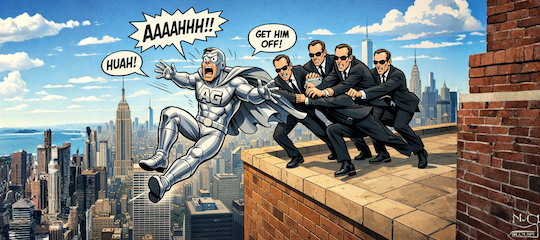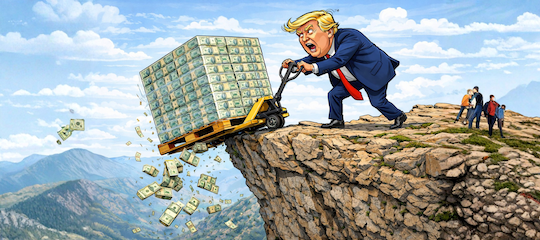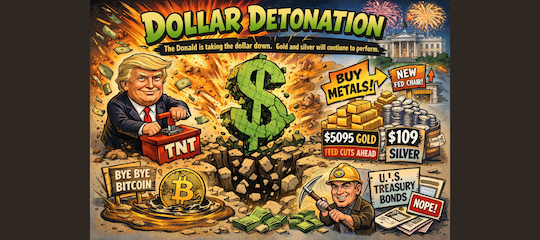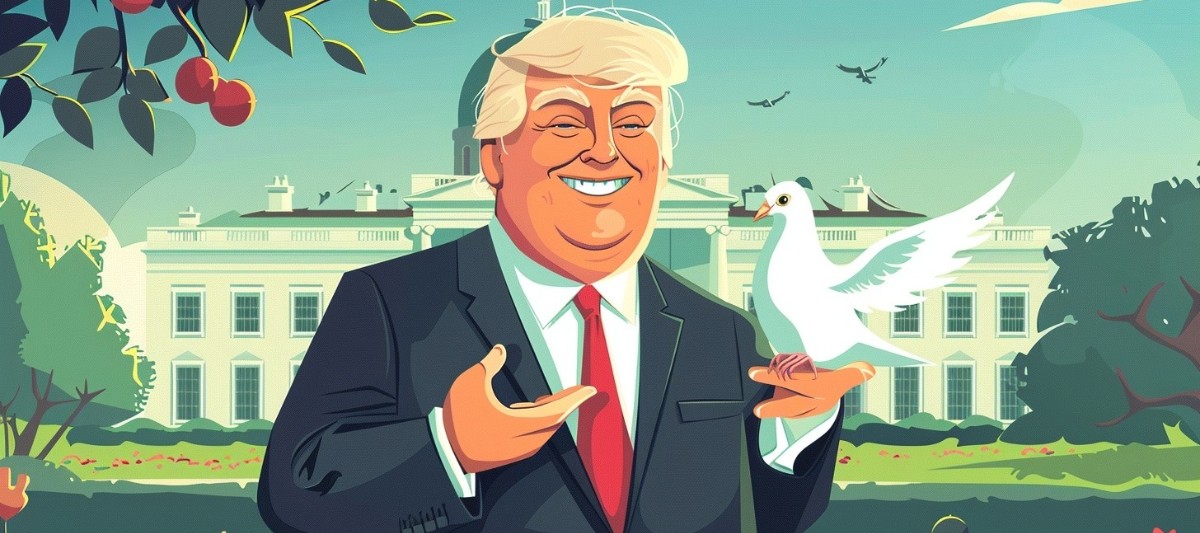Posted December 09, 2021
By Sean Ring
Klaus Schwab’s Prized Pupil Bans Cigarettes
- Kiwi Prime Minister Jacinda Ardern announced plans to ban selling tobacco products to anyone born after 2011.
- Even after these kids turn 18 in 2029, they still will not be able to buy any cigarettes in their home country.
- Of course, those New Zealanders who have a passing acquaintance with applied economics immediately criticized the move.
Quick note for some of you: “Kiwi” is a nickname for “New Zealander” (because of their national bird, not the fruit). Just like Americans are “Yanks” (even if you’re a Southerner) and French people are “frogs.” Fun Fact of the day: French people call the British “roast beefs.” Seriously.
Happy Friday!
After a long week of toil, enjoy your cup of coffee this morning.
And tonight, enjoy an adult beverage.
In the meantime, I’m going to show you why politicians with God complexes meddle with forces they can’t possibly control.
The Model
The model is simple: ban anything the bureaucracy feels is detrimental, and then it disappears.
This model works in a simulation on a computer. This model works as a thought experiment given certain assumptions.
But in the real world, the model fails immediately.
No matter how much they want to, politicians and their bureaucratic accomplices cannot control human desire.
And one of the greatest human desires is to escape the mundanity of everyday existence.
Some accomplish this with exercise, some with skydiving. Some ski down steep slopes, some travel long distances.
And yes, some use mind-altering drugs to escape.
Let’s not be picayune with our definition of mind-altering drugs.
Cigarettes, alcohol, marijuana, LSD. Heck, some even credit caffeine - yes, it’s a drug - with creating the modern world.
This will not be a piece defending cigarettes per se.
I smoke once every few years for one session, usually because I’m beyond tipsy.
That they’re detrimental to human health is beyond dispute.
The thing is, we’ve got the message.
Here are America’s smoking stats:
And New Zealand’s:
It looks to me that the horse has already bolted.
But politicians always want to force the end - in this case, zero smokers - when the future is already in sight.
I’m reminded of the War on Poverty in the United States. Read this great post by Daniel J. Mitchell from 2015 when you get a chance.
Poverty was already dramatically reduced before the “War” was announced. And then, to no one’s surprise, poverty has maintained a constant rate.
That is, the “War” on Poverty didn’t eradicate poverty.
I predict this will be the same story as Ardern’s tobacco policy.
The Actual Policy
From the New Zealand Herald:
People aged 14 and under will soon be unable to legally buy tobacco, under new legislation being announced today.
Associate Minister of Health Dr. Ayesha Verrall launched Auahi Kore Aotearoa Mahere Rautaki 2025, the Smokefree 2025 Action Plan, this morning.
The plan includes measures that by the end of next year under 14-year-olds will not be able to legally purchase tobacco, and the age rises each year.
"This is a historic day for the health of our people," Verrall said.
"Smoking is still the leading cause of preventable death in New Zealand and causes one in four cancers. Smoking-related harm is particularly prevalent in our Māori, Pacific and low-income communities."
The crackdown has been welcomed as a world-leading tobacco control measure.
Prime Minister Jacinda Ardern said the action plan was focused on ensuring young people did not take up smoking in the first place: "Half of those who take up smoking die from its effects".
However, simply continuing to increase prices was no longer as effective, and other measures had to be taken Ardern said.
Ardern was asked about vaping and said it was an alternative that worked very successfully to help people stop smoking.
"It is an important tool. I'm sure there will be those who want to have a say on the use of vaping among young people in the future, but we are very focused in this plan on stopping people from taking up smoking in the first place."
She said the aim was to find safe ways for people to quit.
Let me once again state that there’s no doubt smoking is bad for human health.
But that’s not the point.
The point is banning things only makes people want them more.
From France24’s coverage of NZ’s tobacco ban:
However, the Dairy and Business Owners Group, a lobby group for local convenience stores, known in New Zealand as dairies, said while it supported a smoke-free country, the government's plan would destroy many businesses.
"This is all 100 percent theory and zero percent substance," the group's chairman, Sunny Kaushal, told Stuff.co.nz. "There’s going to be a crime wave. Gangs and criminals will fill the gap with ciggie houses alongside tinnie houses*."
*Note: In New Zealand, a "tinny" or "tinnie" can be a small package of cannabis wrapped in tin foil, retailing for between NZ$20–25 (depending on the region). A building where such retailing takes place (commonly a superficially unremarkable home) is a "tinnie house.”
I won’t argue their corner on the first point.
Monks went out of the scribe business with the invention of the printing press. As did brougham drivers when motorized taxis came into play.
But the second point is well-made. So let’s get into black markets.
Black Markets
The great Murray Rothbard wrote an excellent explanation in Power and Market:
In many instances of product prohibition, of course, inevitable pressure develops for the reestablishment of the market illegally, i.e., as a “black” market. As in the case of price control, a black market creates difficulties because of its illegality.
The supply of the product will be scarcer, and the price of the product will be higher to compensate the producers for the risk of violating the law; and the more strict the prohibition and penalties, the scarcer the product and the higher the price will be.
Furthermore, the illegality hinders the process of distributing to the consumer’s information (e.g., by way of advertising) about the existence of the market. As a result, the organization of the market will be far less efficient, the service to the consumer will decline in quality, and prices again will be higher than under a legal market.
The premium on secrecy in the “black” market also militates against large-scale business, which is likely to be more visible and therefore more vulnerable to law enforcement.
The advantages of efficient large-scale organization are thus lost, injuring the consumer and raising prices because of the diminished supply.
Paradoxically, the prohibition may serve as a form of grant of monopolistic privilege to the black marketeers, since they are likely to be very different entrepreneurs from those who would succeed in a legal market.
For in the black market, rewards accrue to skill in bypassing the law or in bribing government officials.
Talking to kiwi friends, they say it’s much harder to get illicit goods into the country. Both its location and the travel ban help out. For now.
As a matter of fact, the NZ government just busted a smuggling ring.
One kiwi friend noted that a “friend of a friend of a friend” told her that the price of cocaine is up sharply.
But the fact remains some diminishing amount of people will want a “puff” with their pint. And they’ll have to go around the bureaucracy to get it.
The NZ government probably exacerbated a problem that was already in the process of being solved.
But that’s par for the course when you think you have outsized influence. I wonder where Ms. Ardern got that idea… perhaps Klaus Schwab’s club for kids, the Young Global Leaders Forum?
Have a wonderful weekend!
All the best,
Sean

METALS MELTDOWN!
Posted January 30, 2026
By Sean Ring

Trump’s Victory at Sea
Posted January 29, 2026
By Byron King

Thank You, Mr. President!
Posted January 28, 2026
By Sean Ring
Silver Shellacking
Posted January 27, 2026
By Sean Ring

Dollar Detonation
Posted January 26, 2026
By Sean Ring





